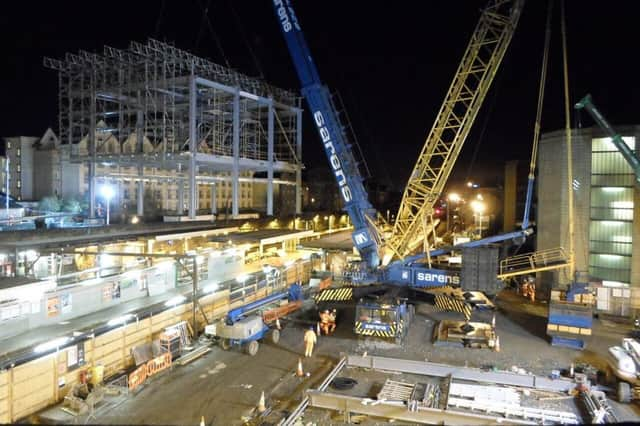Services sector vim aids ‘Goldilocks’ economy


Following recent lacklustre figures from the manufacturing and construction sectors, City economists said the better services performance showed the economic recovery remained largely on track.
The latest Markit/Chartered Institute of Procurement and Supply (Cips) purchasing managers index showed a reading of 55.9 last month, signalling the fastest rate of growth since July.
Advertisement
Hide AdAdvertisement
Hide AdAnything above 50 signals expansion, and follows a figure for services – spanning hotels, restaurants, pubs, accountancy and IT – of 54.9 in October, and a two-and-a-half year low of 53.3 in September.
Chris Williamson, chief economist at Markit, said: “A welcome upturn in service sector expansion helped counter slower growth in manufacturing and construction in November, suggesting the UK continues to enjoy the Goldilocks scenario of solid economic growth and low inflation.
“For now, falling oil and energy costs are offsetting rising wage growth and keeping a lid on inflationary pressures, but the upturn in earnings growth raises questions over just how long inflation, and therefore interest rates, will remain low.”
New services business also lifted to a four-month high, with new contracts linked to such factors as product launches and acquisitions.
Firms admitted they were coming under salary pressures, linked to the UK government’s introduction of the national living wage next April. This will see hourly minimum wages rise to £7.20 for over-25s, from its current level of £6.50, and to at least £9 an hour by 2020.
Yesterday’s report also added that strength of business sentiment was little changed from a two-and-a-half year low in October. However, the expansion in the sector last month contrasts with PMI surveys for the other sectors of the economy earlier this week, which showed manufacturing activity – about 12 per cent of GDP – easing, and growth in the construction sector falling to a seven-month low.
City economists said the strong performances from services – accounting for about 75 per cent of the economy – and its salary pressures would be noted by the Bank of England in its continuing consideration of when to raise interest rates from six-year lows.
Capital Economics economist Ruth Miller commented: “Overall, while the economic recovery still has some obstacles to overcome – including the renewed fiscal squeeze next year – with real wages rising and confidence still riding high, we are confident that the economy should be able to sustain this strong pace in the coming quarters.”
Advertisement
Hide AdAdvertisement
Hide AdThe Cips report said that although new business rose at a faster pace in November, volumes of work outstanding at service providers continued to “grow only marginally, signalling a lack of pressure on operating capacity”.
Meanwhile, jobs in the sector rose at the slowest rate in three months, “albeit one that remained historically strong overall”. The report cited concerns around higher wage bills and “the continuing impact of the national living wage”.
On the outlook, service providers remained largely optimistic that activity would rise over the next year. David Noble, chief executive at Cips, said the sector was “at odds with the other sectors” in November, with respondents more willing to invest in marketing, as optimism remained particularly high in the computing and IT sub-sectors.